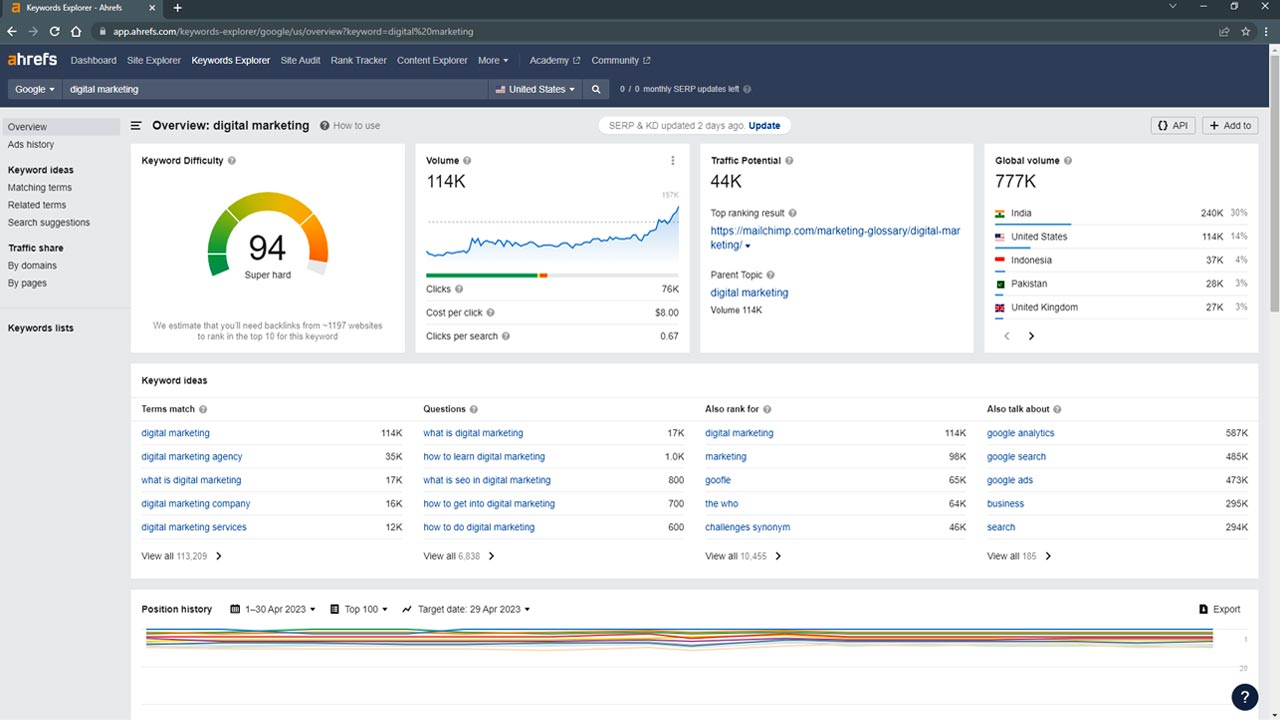In the ever-evolving digital landscape, where websites continually compete for visibility and user engagement, keyword research has emerged as a cornerstone of Search Engine Optimization (SEO) strategy. This crucial process involves identifying, analyzing, and targeting the search terms that users enter into search engines, enabling your website to rank higher, attract more organic traffic, and ultimately, thrive in a saturated market. This comprehensive guide delves into the significance of keyword research, elucidating how it can propel your website to success and enhance its online presence in the face of stiff competition. We will examine the numerous benefits of incorporating keyword research into your SEO strategy, provide practical tips on conducting effective keyword research, and offer insights on optimizing your website using the right keywords.
Why is Keyword Research Important?
Keyword research is the process of identifying and analyzing the search terms people use to find content or products online. By targeting the right keywords, your website can rank higher in search engine results pages (SERPs), drive more traffic, and ultimately, achieve your business goals. Here are some of the reasons why keyword research is essential:
Increased Visibility
- By targeting popular and relevant keywords, your website can appear in the search results for a broader audience.
- The higher your website ranks, the more likely users are to click on your link, increasing your visibility.
Better Targeting
- Keyword research helps you understand your target audience and their search habits.
- By targeting specific keywords, you can create content tailored to their needs, preferences, and interests.
Improved Conversion Rates
- When your website ranks for relevant keywords, it attracts a more qualified audience.
- This targeted traffic is more likely to convert into leads, subscribers, or customers.
Getting Started with Keyword Research
To conduct effective keyword research, follow these steps:
1. Brainstorm
- Start by listing out potential keywords related to your website’s niche or industry.
- Consider the problems your target audience faces and the questions they might ask.
- Explore your competitors’ websites to identify the keywords they’re targeting.
2. Use Keyword Research Tools
- Leverage popular keyword research tools like Google Ads Keyword Planner, Ahrefs, and SEMrush.
- These tools provide search volume data, keyword difficulty scores, and related keyword suggestions.
3. Analyze the Competition
- Research the websites ranking for your target keywords.
- Evaluate their content quality, website authority, and backlink profiles.
- Identify gaps in their content and opportunities to outrank them.
4. Prioritize Keywords
- Based on your research, prioritize keywords according to search volume, competition, and relevance to your business.
- Focus on long-tail keywords, which have lower competition and higher conversion rates.
Implementing Keywords on Your Website
Once you’ve identified your target keywords, it’s time to optimize your website. Here are some ways to effectively use keywords on your site:
On-page SEO
- Incorporate keywords in your page titles, meta descriptions, and URL structures.
- Use keywords naturally within your content, headers, and image alt tags.
- Maintain keyword density without over-optimizing or keyword stuffing.
Content Creation
- Develop high-quality, informative, and engaging content around your target keywords.
- Address your audience’s needs and interests to create content that provides value.
- Update your content regularly to keep it fresh and relevant.
Link Building
- Build high-quality backlinks to your website by creating shareable content and reaching out to industry influencers.
- Use your target keywords as anchor text in your backlinks, but avoid over-optimization.
By conducting thorough keyword research and effectively implementing keywords on your website, you can improve your site’s visibility, attract more targeted traffic, and increase conversion rates. This process is essential for any website looking to succeed in the competitive online space.








